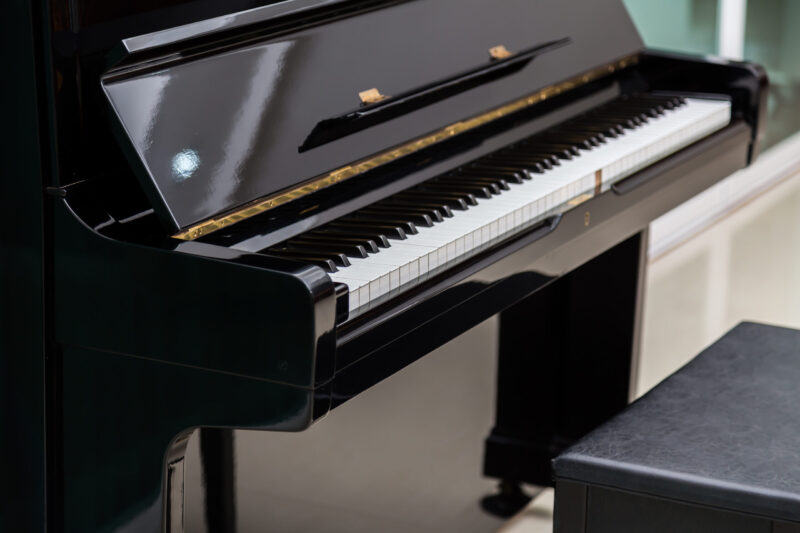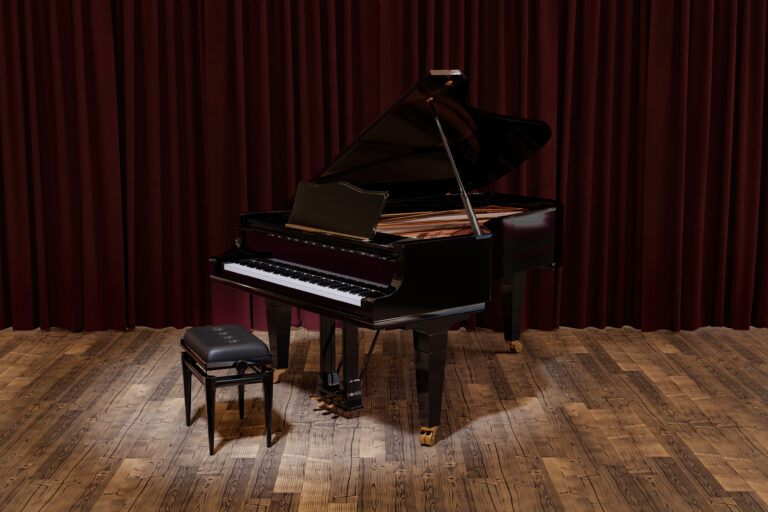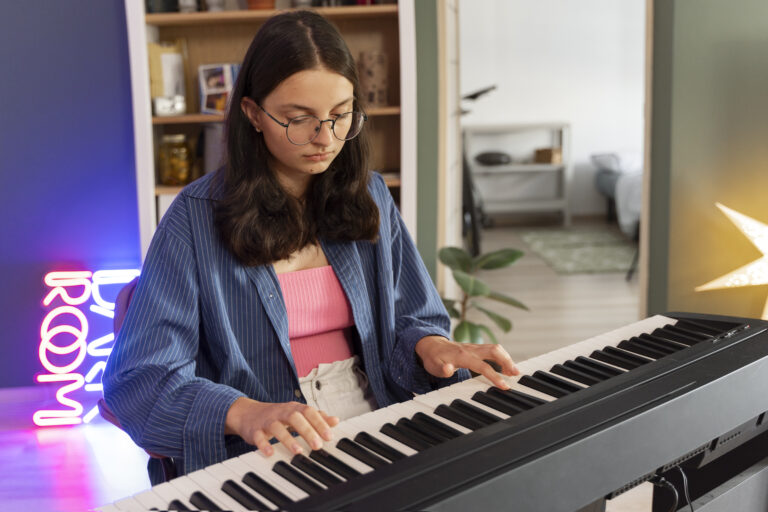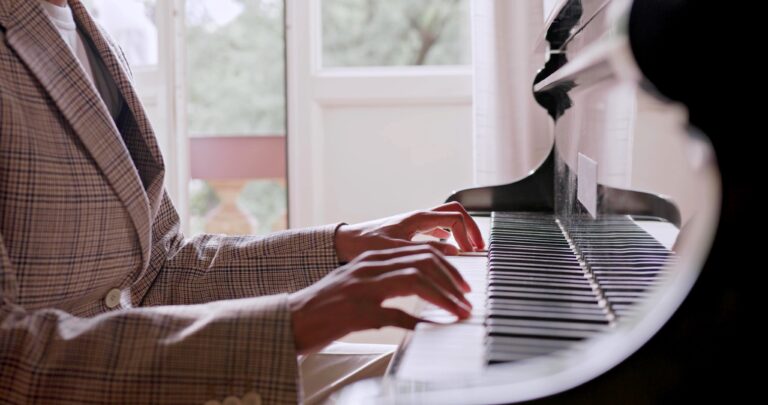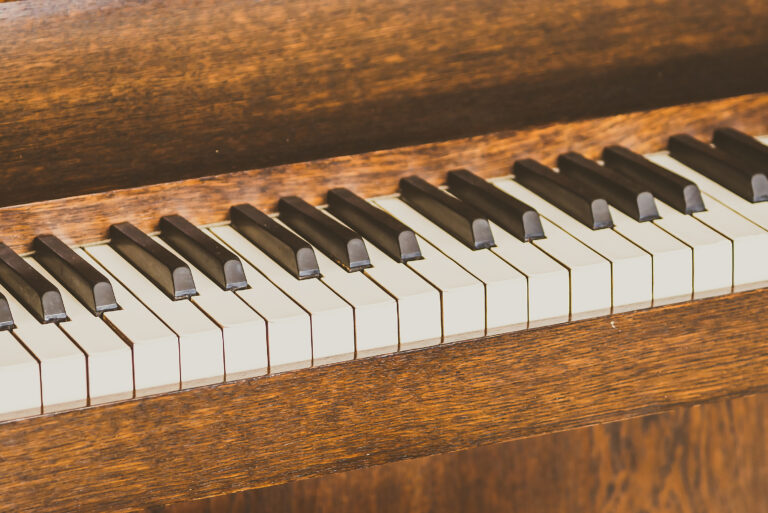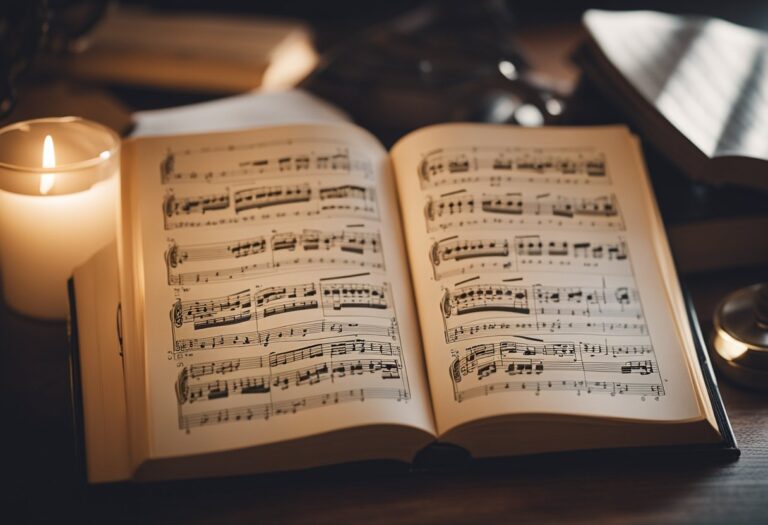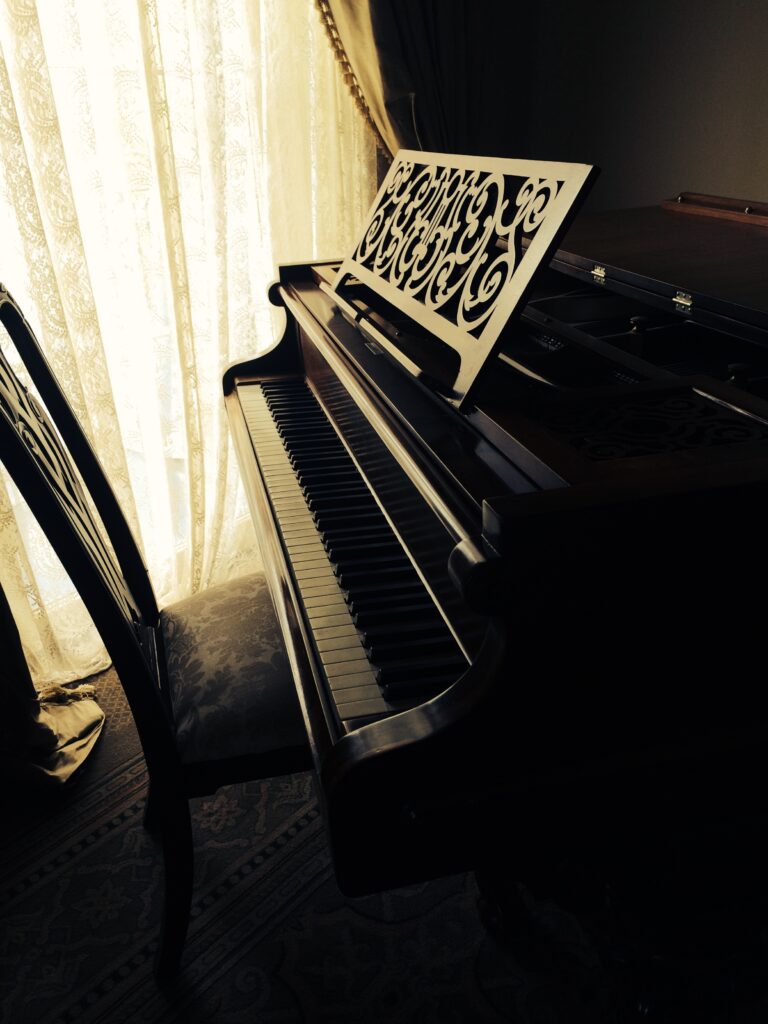The Enigmatic Offer: Exploring the True Worth of Free Pianos
Are free pianos worth it? It’s a question that many people ask themselves when they come across a free piano. On one hand, getting a piano for free can be a great opportunity to learn how to play an instrument or to have a beautiful piece of furniture in your home. On the other hand, there are many potential downsides to accepting a free piano, such as the cost of moving it, repairing it, and maintaining it.
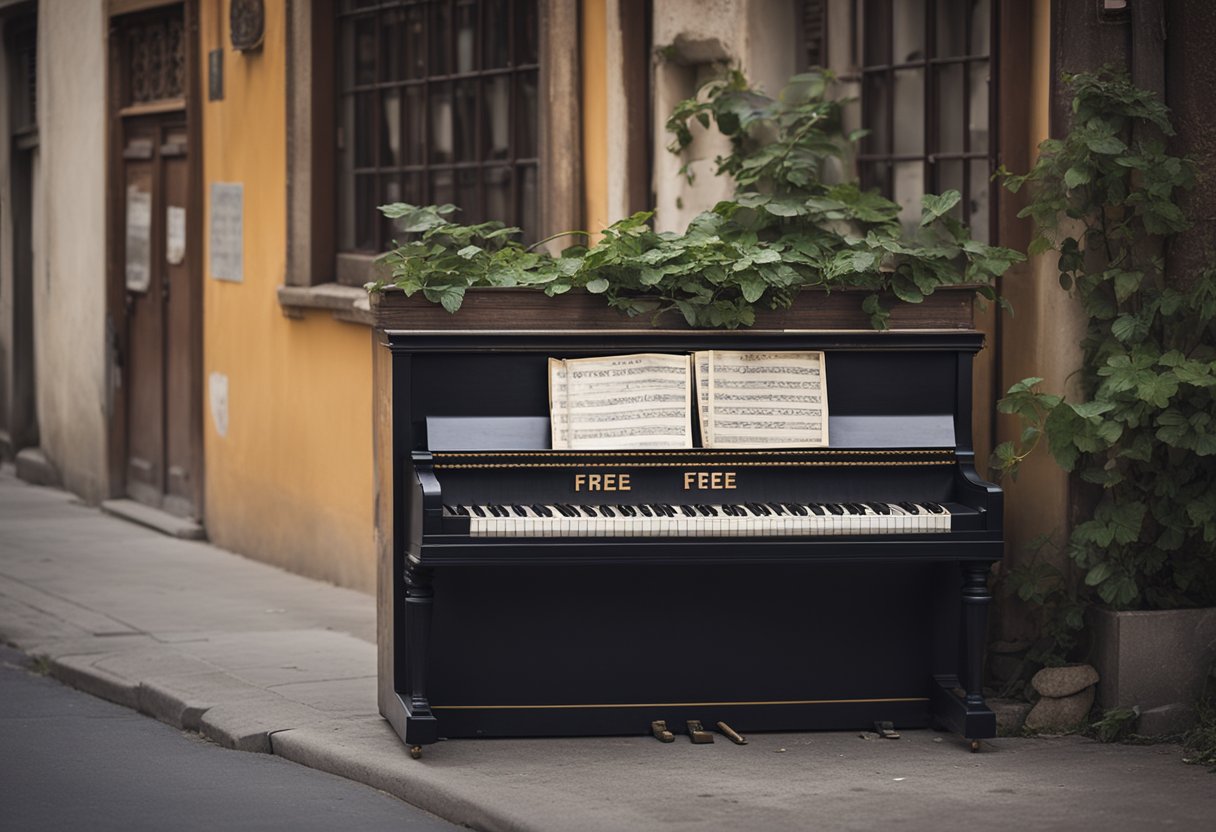
One of the main concerns when it comes to free pianos is the condition of the instrument. It’s not uncommon for free pianos to be in poor condition, with broken keys, out-of-tune strings, or other issues that can make them difficult or impossible to play. In some cases, the cost of repairing a free piano can be more than the cost of buying a new one, which can make accepting a free piano a bad investment.
Another factor to consider when deciding whether or not to accept a free piano is the cost of moving it. Pianos are heavy and bulky, which means that moving them can be expensive and time-consuming. If you don’t have access to a truck or trailer, you may need to hire a professional moving company to transport the piano, which can add hundreds of dollars to the cost of accepting a free piano.
Assessing the Value of Free Pianos
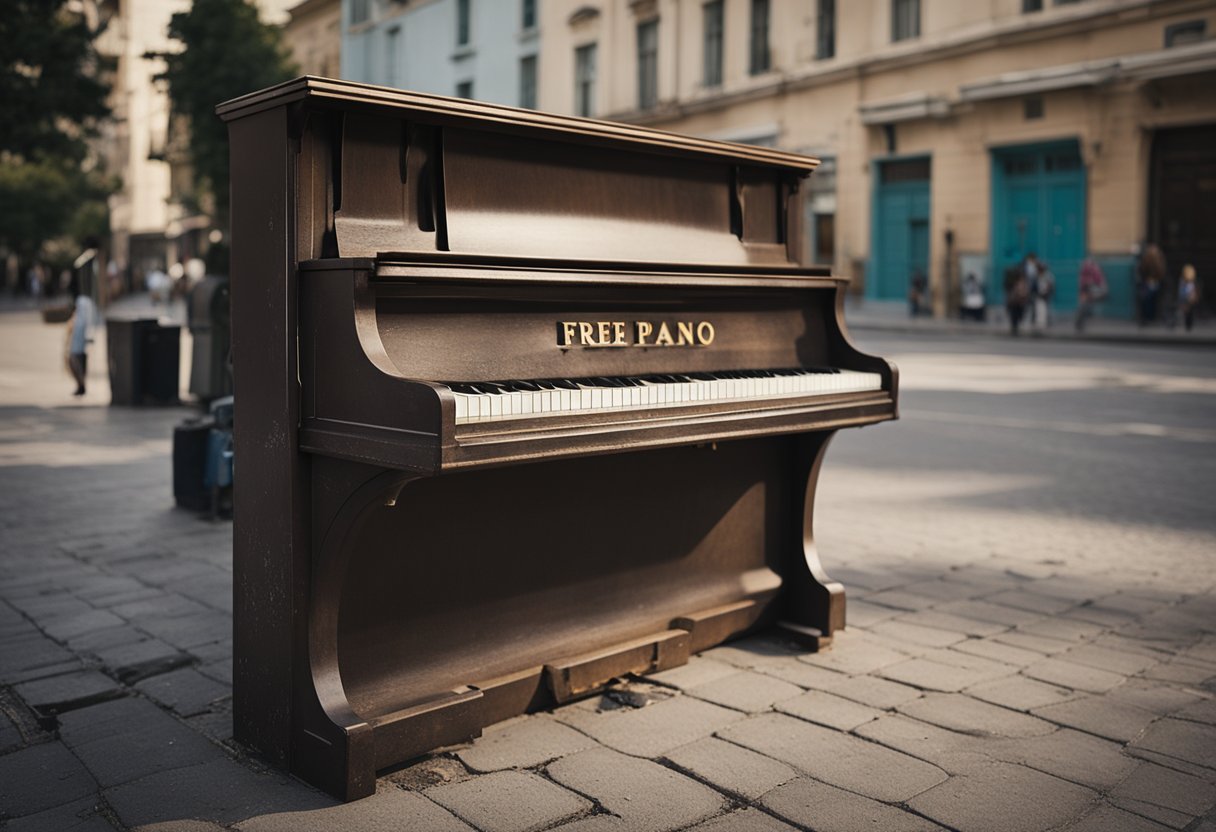
If you’re considering getting a piano for free, you may be wondering whether it’s worth it. While the idea of a free piano might seem like a great deal, it’s important to assess the value of the instrument before taking it home.
Cost-Benefit Analysis
When assessing the value of a free piano, it’s important to consider the cost-benefit analysis. While the piano itself may be free, there are other costs associated with owning a piano. For example, you may need to pay for:
- Piano movers to transport the piano to your home
- Piano tuning and maintenance
- Piano lessons, if you’re a beginner
These costs can add up quickly, so it’s important to weigh the benefits of owning a piano against the costs.
Potential Hidden Costs
In addition to the costs mentioned above, there may be potential hidden costs associated with free pianos. For example, the piano may have hidden damage or require significant repairs. If the piano is not in good condition, you may need to spend a significant amount of money to make it playable.
Another potential hidden cost is the space required to store the piano. Pianos are large instruments and require a significant amount of space. If you don’t have a dedicated space for the piano, you may need to rearrange your home or rent a storage unit.
Understanding Piano Quality

When considering a free piano, it’s important to understand the quality of the instrument you’re receiving. Here are two key factors to consider:
Age and Condition
The age and condition of a piano can greatly affect its sound quality and playability. Older pianos may have worn-out or warped parts, which can cause the instrument to sound out of tune or make it difficult to play. On the other hand, a well-maintained older piano may have a unique and desirable sound.
When examining the condition of a free piano, look for any signs of damage or wear, such as cracks in the soundboard, loose tuning pins, or sticky keys. These issues can be costly to repair, so it’s important to factor in the cost of repairs when evaluating the value of a free piano.
Brand and Model Relevance
The brand and model of a piano can also impact its quality and value. Some brands are known for producing high-quality instruments that are highly sought after, while others may have a reputation for producing lower-quality instruments.
When evaluating the brand and model of a free piano, do some research to determine its reputation and value. Look for reviews from other piano players and check the resale value of similar models.
Logistical Considerations of Acquiring a Free Piano
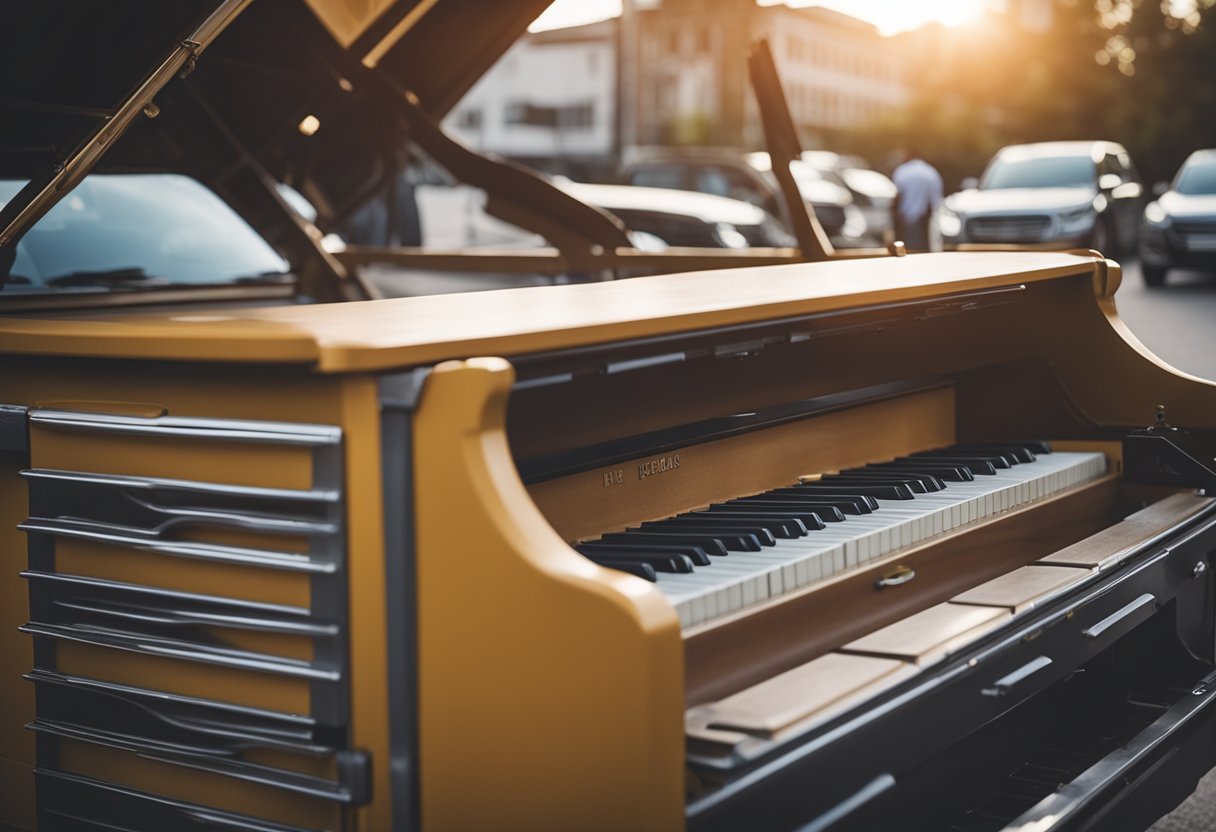
When considering acquiring a free piano, there are several logistical considerations to keep in mind. Two of the most important factors to consider are transportation challenges and tuning and maintenance.
Transportation Challenges
Transporting a piano can be a daunting task, especially if you don’t have access to a vehicle that can accommodate the instrument’s size and weight. It’s important to measure your doorways, hallways, and staircases to ensure that the piano can be moved into your home without causing damage to your property or the instrument itself. Additionally, you may need to enlist the help of several people to lift and move the piano safely.
Tuning and Maintenance
Free pianos may require significant tuning and maintenance before they can be played. If the piano has been sitting unused for a long period, the strings may have gone out of tune or the instrument may have suffered damage from exposure to temperature and humidity changes. Tuning and repairing a piano can be expensive, so it’s important to factor these costs into your decision to acquire a free piano.
The Pros and Cons of Free Pianos
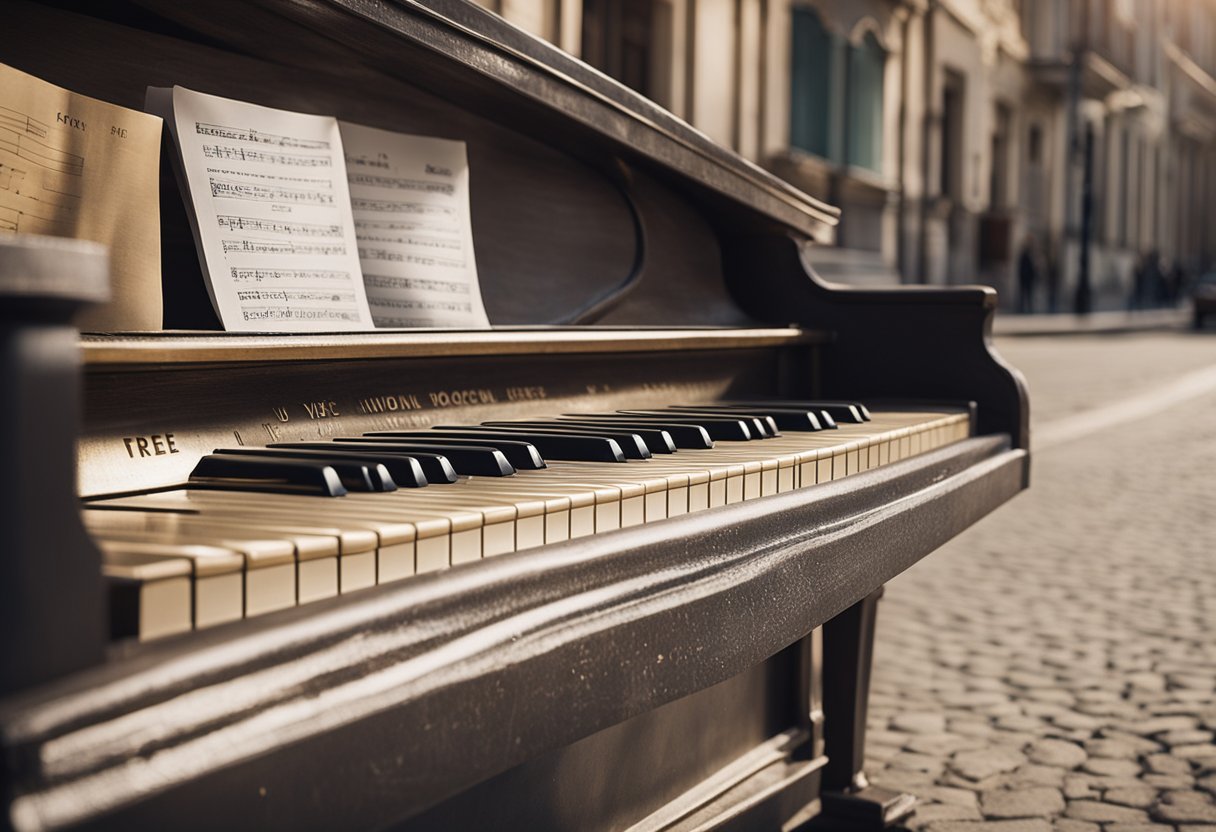
Advantages of Free Pianos
If you are looking for a piano, a free piano can be a tempting option. Here are some advantages of free pianos:
- Piano movers to transport the piano to your home
- Piano tuning and maintenance
- Piano lessons, if you’re a beginner
Disadvantages of Free Pianos
However, there are also some disadvantages to consider before taking a free piano:
- Condition: Free pianos are often old and in poor condition. They may require a lot of repairs and maintenance, which can be expensive.
- Quality: Free pianos may not be of good quality and may not produce good sound. If you are a serious musician, you may want to consider investing in a better-quality piano.
- Moving: Free pianos are often heavy and difficult to move. You may need to hire professionals to move it, which can be expensive.
Making the Decision
When considering whether to accept a free piano, there are a few factors to take into account. Here are some things to consider before making your decision.
When to Accept a Free Piano
If you are just starting as a pianist or have a limited budget, a free piano can be a great option. However, it’s important to make sure that the piano is in good condition and won’t require extensive repairs. Check for any signs of damage, such as broken keys or strings, and make sure the piano is in tune.
If you are an experienced pianist or looking for a high-quality instrument, a free piano may not be the best option. While there are certainly high-quality pianos available for free, they are few and far between. Additionally, even if the piano is in good condition, it may not have the sound or feel that you are looking for.
Alternatives to Free Pianos
If you decide that a free piano is not the right option for you, there are other alternatives to consider. One option is to purchase a used piano. While this will require an investment, it may be a better option if you are looking for a higher-quality instrument.
Another option is to rent a piano. This can be a good option if you are unsure whether you want to commit to owning a piano or if you are only planning to use the piano for a short period.
Frequently Asked Questions
What should I look for when considering a free piano?
When considering a free piano, it’s important to pay attention to its condition. Look for signs of wear and tear, such as scratches, dents, or chips. Check the keys to make sure they all work properly and that there are no broken strings. You should also inspect the soundboard and the tuning pins to ensure they are in good condition.
How can I assess the condition of a piano that is being given away?
To assess the condition of a free piano, you should play it and listen for any unusual sounds. Check the pedals to make sure they work properly. If possible, have a professional piano technician inspect the piano to give you a better idea of its condition.
What are the potential costs associated with accepting a free piano?
While a free piano may seem like a great deal, there are potential costs associated with accepting one. You may need to pay for moving and transportation costs, as well as tuning and maintenance fees. Additionally, if the piano is in poor condition, you may need to invest in repairs or replacements.
Is a free piano a good option for a beginner player?
A free piano can be a good option for a beginner player, as it provides an opportunity to practice and learn without a significant financial investment. However, it’s important to make sure the piano is in good condition and suitable for learning.
What are common reasons people offer pianos for free?
People may offer pianos for free for various reasons, such as moving to a smaller home, upgrading to a newer piano, or simply wanting to get rid of an old piano.
How does a free acoustic piano compare to a digital piano in terms of value?
A free acoustic piano may have sentimental value and a unique sound, but a digital piano may offer more features and versatility. Ultimately, the choice between an acoustic and digital piano depends on personal preference and individual needs.
